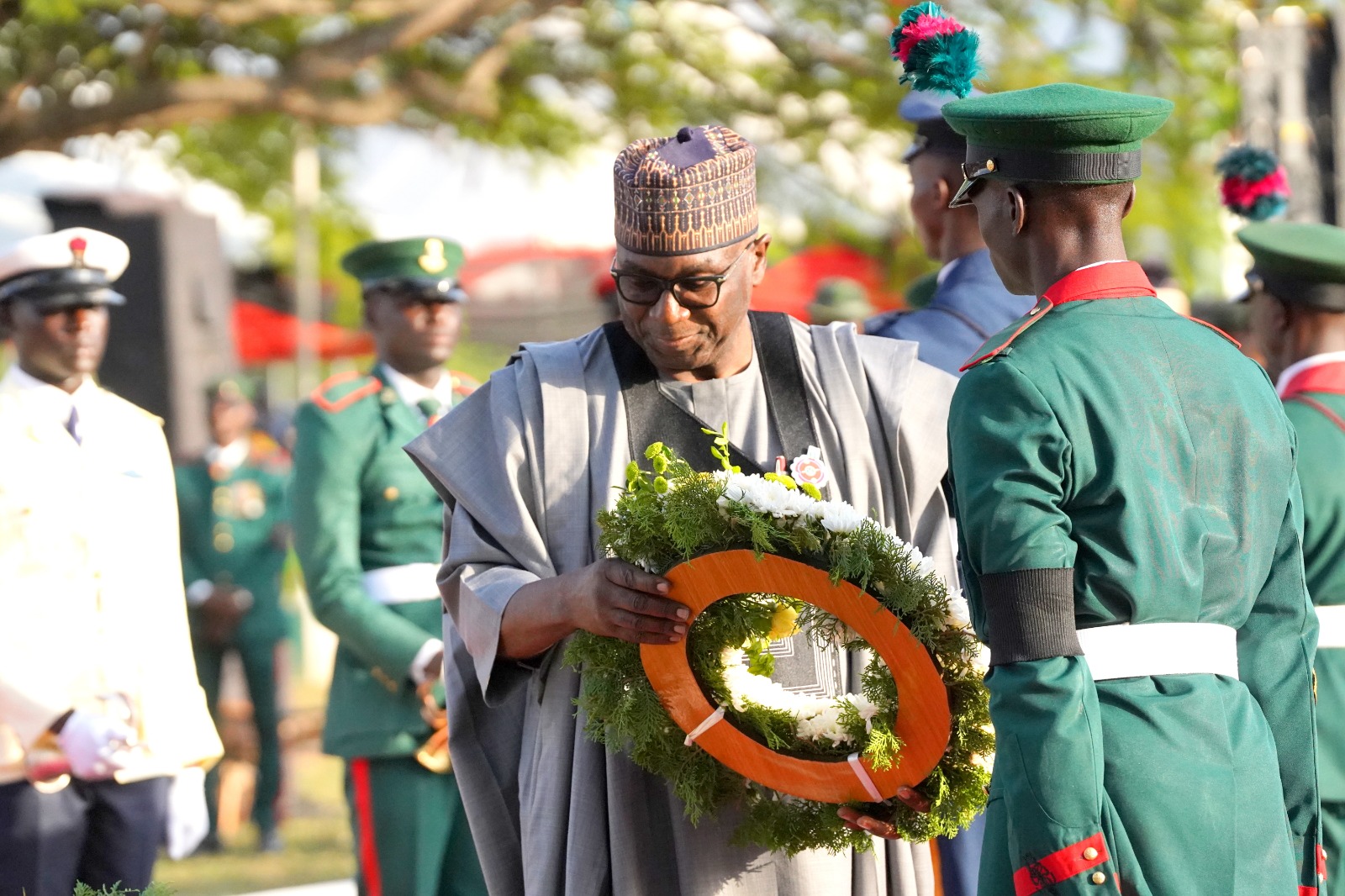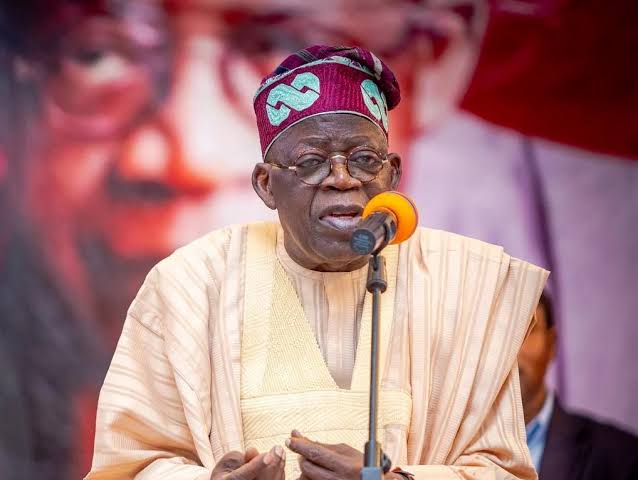‘Vote right to keep what’s left’ is a political slogan adopted by British longest serving Prime Minister of 20th century Margaret Thatcher in her first attempt at parliamentary representation in 1950. It was a sound bite that captured her imagination of the 1950s British society and her belief that the country would be better served with the Conservatives.
I found the Thatcher lines very instructive as Kwarans go to poll next year. Having been privy to the report of the forensic audit that detailed how the Kwara treasury was mindlessly pilfered through what was like a large web of official conspiracies as well as irrefutable evidences of outrageous rationing out of public properties, it is only reasonable for the voters to disallow the second coming of persons who perpetrated the crimes ostensibly through their cronies. If these crimes weren’t known to the voters, they sure can tell how everything collapsed: basic education, healthcare, workers’ welfare. They knew how the state became a colony where opportunities were meant only for members of the reigning political establishment.
It is an irony therefore to hear persons implicated in the mess talking of Irapada Kwara. What could have prompted anyone from within the ousted dynasty to talk of Irapada? If Irapada means a positive turnaround of a bad situation, how do persons under whose watch the state ticked all the wrong boxes qualify for a baton to redeem it or drive it to the next level? Like their leaders who continue to say that they were victims of propaganda in 2019, it is now clear that the camp has promoted truthiness to an official campaign policy. I had predicted such behaviour in our riposte to an interview their patron had granted in October 2021. What I never expected was anyone from their camp using Irapada as a rallying cry!
Irapada from what to what? Since facts are sacred and verifiable through history, witnesses to history, and data, let us attempt a comparison of the past and the present — and leave readers to judge whether the state is on a better footing today or not. As far as Kwara is concerned, it is a case of the fowl lacking the bonafide to tell if the wolf is feeling unconsciousness — _bi oju akata balewo, enu adiye ko lo ye ka ti gbo_ . Whether tangible or intangible, the present is a lot better than the past. It can only get better when the present is allowed to build on its own successes and make adjustments where appropriate.
In terms of workers’ welfare which in turn lubricates the local economy, facts of history place this administration above its predecessors. Not only are workers paid as and when due, the minimum wage law was implemented in a way that fair-minded workers say was unprecedented in the quantum of pay rise. Backlogs of promotions were paid, while great efforts are at play to pay pension and offset arrears of gratuities. This has more to do with the Governor’s commitment to the well-being of the people than the size of the allocation. When revenue dropped to an all-time low in early 2021 and again in parts of 2022, the state government prioritised salary payment. Throughout covid lockdowns when many states cut salaries to workers, Kwara proved different. It paid workers 100 percent throughout the period. History: In 2016 when Nigeria slid into a recession and things got so bad for the people, especially in Kwara where workers were not paid despite bailouts, the de facto leader of the state was hell-bent on purchasing luxury cars for himself and his colleagues. It is a matter of priority.
Every civilisation is built on solid education. In 2019, this state had lost its bearing in (public) education at all levels. The indices: basic education had collapsed with school infrastructure completely down, teachers totally demotivated as a result of non-payment of salary, and Kwara serving varying degrees of sanctions. Public schools had become the last option.
The last three years have seen positive rebounds in education. Kwara has risen to national prominence — up from official blacklist and bottom ranking in basic education in 2019. School infrastructures still need further upgrade but the widespread orgy of dilapidated structures crying for help has largely disappeared. Quality of teaching has improved while absenteeism is being tackled through technology and improved oversight, thanks to the administration’s KwaraLearn initiative. For the first time, the new administration has introduced a teachers’ recruitment process that prioritises competence and right qualifications over political loyalty or affiliations of any kind.
Consequence: in what many say clearly underlines rising confidence in government’s efforts, enrolment in public schools has risen under this administration, as against a considerable dip in private schools’ enrolment in the past few years. For example, recent public primary schools new intakes were as follows: 220,632 (2018/2019); 230,211 (2019/2020); 230,847 (2020/2021). Junior public schools’ new intakes were as follows: 109,129 (2018/2019); 108,789 (2019/2020); 112,172 (2020/2021). For senior secondary schools (public), the data are as follows: 84,623 (2018/2019); 84,986 (2019/2020); 87,342 (2020/2021).
The tally went down for the private schools in the same years as follows in primary schools schools: 86,725 (2018/2019); 79,700 (2019/2020); 75,530 (2020/2021). In junior secondary schools, it went this way: 23,205 (2018/2019); 21,233 (2019/2020); 19,451 (2020/2021). For senior secondary schools, they stood this way: 18,694 (2018/2019); 15,509 (2019/2020); 13,784 (2020/2021). This data is as kept by the ministry of education. Could there be any other variables responsible for this tilt? The government is probing that.
The economy has grown bigger, and the business climate is far more liberal and competitive today than it ever was in the past. From one constant daily flight to Ilorin in 2019, there are at least three daily flights to Ilorin now. From 21.1% unemployment rate in 2019, Kwara now has 16.5%, according to the most recent data from the Nigeria Bureau of Statistics. Similarly, the Kwara Chamber of Commerce, Industry, Mines and Agriculture (KWACCIMA) puts the number of active manufacturing companies in the state at 77 today, up from 41 in 2019.
The Office of the Senior Special Assistant to the Governor on Job Creation Bar. Aliyu AlHassan says the administration has created at least 79,437 direct and indirect jobs over the last three years. Of these, 4,998 were in the public sector, while 8,106 are entrepreneurial jobs. Additional 1,667 cooks were employed under the joint home grown school feeding programme, while some 64,666 workers have been engaged to execute 1,637 projects worth over 97 billion naira.
As of August 2022, the administration has supported 61,998 enterprises (mostly small and medium scale businesses) through various non-interest loans or grants, including during the EndSARS crisis of 2020. Today, no less than 48,000 vulnerable persons are either benefiting from free health insurance or the Owo Arugbo scheme. The latter is a structured, lawful and dignifying safety net that replaces the dehumanising practice of the past in which hundreds of vulnerable people were killed year-in-year-out in avoidable stampedes.
The administration has not introduced new taxes in the state since 2019. Instead, it has brought improved technology, more efficiency and transparency to taxation, including widening the tax net. From one (Quickteller) payment platform in 2019, the tax agency now deploys three: Quickteller, Remita, and PayArena. From a little above 200 tax payer certified identities in 2019, the agency now has over 140,000 of it. The state now has 2,403 taxable firms, up from 1,728 in 2019.
In health and water sectors, both eras are light years apart. A run-through of the indices attests to this, as I had written in January this year. A positive update is that the state now has below-national-average malaria prevalence of 20%, down from 27 in 2019. It has recently dropped the unenviable trophy as Nigeria’s headquarters of open defecation. This is thanks to the appreciable investments in water, sanitation and hygiene (WASH). From zero intensive care unit in 2019, Kwara now has two well-equipped ICU facilities, one of which is touted as the largest in central Nigeria. For the first time in history, Kwara is now accredited to train specialist doctors. And there are a lot more of other enviable firsts under this administration.
By the time Kwarans go to vote next year, politicians on all sides will not need to go to radio stations in Benin Republic to run jingles for inhabitants of Baruten and Kaiama. This is thanks to the new administration building the first radio station, _Notia_ FM, in the entire Kwara North since 1967. Today, many people no longer go to Benin Republic to go get water or access healthcare. For the first time in decades, Kwara TV can now be seen and heard clearly. And Radio Kwara is stronger than ever today. These are huge gains of the Otoge revolution.
The administration inherited an unplanned state, with its capital city and other major towns condemned to arbitrary growths. The result was catastrophic: yearly flooding around Asa River and its tributaries, loss of lives and properties. Today, the Asa River has been dredged and the agony of the flooding around it is gone — safe for flash floods, rising water levels, and other vagaries of climate change that are not limited to any part of the world.
The Otoge administration has not only evolved a 10-year sustainable development plan; it has gone ahead to design a 20-year master plan for the capital city — the second since the first was designed in the 1970s —, while plans are afoot to do same for the Offa-Oyun, Ekiti, Igbomina, Nupe, and Baruba axes of the state. This will guide future growths in the state.
The 2023 ballot, therefore, offers Kwarans a good opportunity to consolidate on the gains of 2019. It is a time to vote right to keep AbdulRazaq in power for another four years, so he can steadily accelerate the pace of socioeconomic development anchored on the dignity of the human person, respect for individual rights and opportunities for all.
A relapse to the pre-2019 hegemonic politics is not an option. Neither are those whose only claim to power flows from envy and what you may call a manifestation of god complex. That is Kwara’s version of ‘we are more rightful to the throne than he is’. Our God, the owner of eternal throne, is there to repeat to them what he did to those who felt they were more entitled to the crown than Talut .
• Rafiu Ajakaye is Chief Press Secretary to Governor of Kwara State







